Shenzhen University
July 2022
The 47th International Systemic Functional Congress, ISFC 47, was successfully held online from July 25-27, 2022 after three years of frustrations and difficulties in the decision-making and organisational processes because of the COVID pandemic. The Congress was launched by the International Systemic Functional Linguistics Association (ISFLA) and organised by the School of Foreign Languages, Shenzhen University, coordinated by the international journal, Language, Context and Text: The Social Semiotics Forum (LANGCT) and the Journal of Foreign Languages in China by the Higher Education Press.
ISFLA’s International Committee decided in July 2017 that the Congress was to be held in China during July 12-16, 2020. However, due to the pandemic, it was postponed to July 25-29, 2022, changed from offline to online format and its duration was reduced from five days to three days. Three sessions (morning, afternoon and evening) were arranged each day to cater for time constraints on speakers and attendees from (1) East Asia, Southeast Asia, South Asia, Australia, New Zealand, (2) the Middle East and Europe and (3) Americas.
Since the Congress coincided with the 18th China National Conference on Discourse Analysis, they were convened together, consistent with an established tradition. Prior to the Congress, the 47th International Systemic Functional Pre-Congress Institute and the 21st China Systemics Week were held from July 21-23, with six specific programmes running simultaneously.
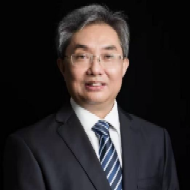
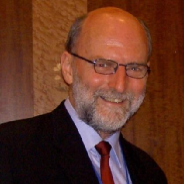
Convenors: Professor Xuanwei Peng (left) & Professor Geoff Williams (right)
The opening ceremony of the Congress was presided over by Professor Xuanwei (Alex) Peng. Delegates were warmly welcomed by the Vice President of Shenzhen University for social science, ZHANG, Xiaohong and Professor HUANG, Guowen (one of the chairs of the ISFLA Congress Academic Committee, the former chair of the ISFLA Congress Working Committee, the president of the Discourse Analysis Committee and a professor at South China Agricultural University). Two well-known scholars of international systemic functional linguistics, J.R. Martin, a fellow of the Australian Academy of the Humanities and professor, University of Sydney, and Christian M.I.M. Matthiessen (a chair of the Congress and co-author of the highly influential works, An introduction to functional grammar and Construing experience through meaning with the SFL founder, Professor Michael Halliday, also presented welcoming comments and ambitions for Congress discussions.
As the responsible senior administrator and supervisor of the development of the Congress since 2019, Dr Zhang Xiaohong reported that the number of abstracts received by the Working Committee dropped from more than 900 in 2020 to about 280 in 2022, showing the serious impact of the COVID pandemic on the planned academic exchanges. However, she also commented that the original numbers reflected the global attractiveness of Shenzhen as an important part of China’s Greater Bay Area and a pilot area of socialism with Chinese characteristics. She invited SFL scholars to consider joining the Linguistics team at Shenzhen University.
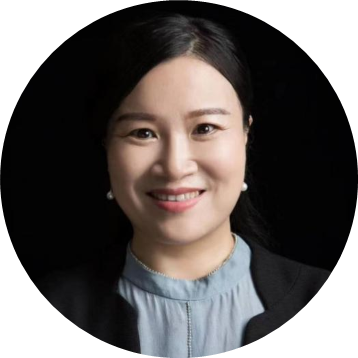
ZHANG, Xiaohong, the Vice President of Shenzhen University
Professor HUANG Guowen pointed out that this Congress was the fourth to be held in China after Peking University (1995), Tsinghua University (2009) and Sun Yat-sen University (2013). Professor HUANG reviewed the development of international SFL over the past half a century, its active promotion in China and the important progress made. He expressed sincere gratitude to all scholars in China and beyond China for their active support and joint effort.

Chair of the Academic Committee HUANG Guowen delivering his welcome speech
The opening ceremony was also privileged to have present Professor DAI Yonghong – the Dean of the School of Foreign Languages, Shenzhen University, Professor Derek Irwin – the Chair of ISFLA and many other widely recognised scholars working in the SFL tradition.
The theme of the Congress was ‘Systemic Functional Linguistics and Praxis: Sustaining dialogue between theory and practice’, including:
1. Developments in SFL Theory and Description
2. Case Studies of Individual Languages
3. Emerging Areas for SFL Transdisciplinary Research
4. Grammatical Metaphor and Discourse Strategies
5. Translation Studies
6. Ecolinguistics
7. Healthcare Communication
8. Clinical Linguistics
9. Language Education
10. Disciplinary English
11. Linguistic Studies of Literary Texts
12. Legal Registers
13. Multimodality/Multisemiosis
14. Corpus Research
15. Comparison of Contemporary Online Texts in Different Languages
16. Advances in Digitally-Based Research Methodologies
17. Semiotics and Applied Linguistics in Theoretical Orientations
18. SFL in relation to Modern Sciences (e.g. Quantum Mechanics, Theories of Complex Systems, Cybernetics, System Theory, Information Theory)
A total of 231 delegates formally registered for the Congress, from China, Japan, Malaysia, Australia, India, Qatar, Saudi Arabia, Germany, Spain, Portugal, Belgium, Chile, Mexico, as well as many other countries and regions. After careful review by the Academic Committee, 187 papers were accepted (including six reports of special issues, 154 independent speeches, and 11 keynote speeches).
The Congress was presented online simultaneously, with open access, via the Zoom platform and a live streaming, with more than 10,000 people attending on the three consecutive days. In one plenary alone 4,700 people participated.
Keynote speeches to the Congress reflected current international research being conducted in systemic functional linguistics.
Professor John Bateman (University of Bremen, Germany) presented research on ‘Challenges in Multimodality Research and the Need to Reconnect Theory, Empiricism and Practice’. He characterised some of the challenges raised in ongoing work on multimodality and showed how more robust methodologies are essential for representing and understanding the complexity encountered in multimodal texts. He also demonstrated very impressive new software that his team is developing for this purpose, in a project investigating ‘false information’ texts.

Professor John Bateman
Dr. David Butt (Associate Professor Hon., Macquarie University) has been a prolific researcher in SFL theory for many years. The title of his presentation was ‘Semantic Cycles: from Context to Lexicogrammar, and Back Again’. It set out from a holistic perspective on context, semantics and lexicogrammar and illustrated a pragmatic approach to semantics on the basis of “turning language back”. Throughout his report, he presented both important theoretical insights and broad perspectives on systemic functional linguistics.
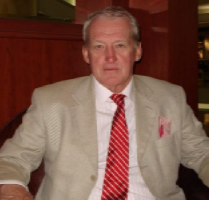
Associate Professor David Butt
Dr. Shoshana Dreyfus (University of Wollongong, Australia) is an expert in developmental linguistics. She presented a report of her research on communicative development of a child with severe intellectual disability (SID). Her aim is to improve the lives of children with SID by using SFL to develop multimodal communication by ‘giving them a voice where their voices are often missing’. Her work included new uses of the ‘teaching-learning cycle’ developed in the Language and social power project, led by Professor J.R.Martin. The uses notably included training of support workers in the SID field.
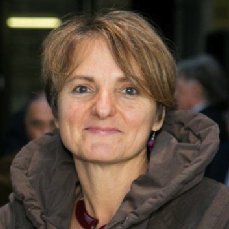
Dr. Shoshana Dreyfus
Dr. Lise Fontaine (Cardiff University) has been deeply influenced by the British tradition of lexical studies, which assisted her to establish herself as a leading scholar on lexical problems within the field of systemic functional linguistics. Her paper was titled ‘Lexis beyond rank’. Her findings demonstrate that natural meaning at the lexical level can also be abstracted and processed from empirical evidence as much as meanings at group and clause levels.

Dr. Lise Fontaine
Professor HE Wei (Beijing Foreign Studies University), has been focusing on ecolinguistics research in recent years. Her report ‘Extension of Systemic Functional Linguistics: Eco-grammar for Ecological Discourse Analysis’ builds an applicable framework for ecolinguistic research from an SFL perspective.
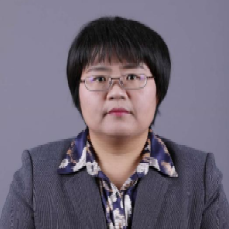
Professor HE Wei
Professor Theo van Leeuwen (University of Southern Denmark & University of New South Wales) is a leading scholar of multimodality in the field of systemic functional linguistics. His presentation was titled ‘The Human Touch: Power and Solidarity in Online Shopping’, and was the first paper in SFL on this important topic, expanding on the widely-respected work of T.F.Mitchell from the 1970s, ‘The language of buying and selling in Cyrenaica’, published in Principles of Firthian Linguistics (1975). Professor van Leeuwen explored systematic changes in eBay from its inception to its current, different practices.
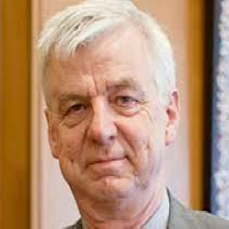
Professor Theo van Leeuwen
Professor J.R. Martin (University of Sydney) has strongly influenced the work of several generations of Chinese SFL scholars through long-term, extensive exchanges with the Chinese academic community, as well as scholars throughout the rest of the world. His report was titled ‘Construing Entities: Types of Structure’. This paper presented new understanding of group structure informed by work in language typology. He provided important proposals to expand group description in SFL theory.
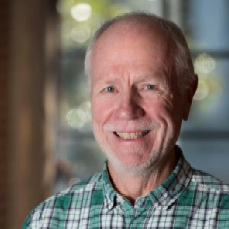
Professor J.R. Martin
Professor Christian M.I.M. Matthiessen (Distinguished Professor of Linguistics, Hunan University, China and Professor, Universidad Complutense de Madrid, Spain) presented a wide-ranging, visionary paper titled ‘The Language (Registers, Discourses) of Healthcare: Theory and Practice’. He systemically elaborated potential for dialogue between SFL theory and practice, and theory and practice in healthcare communication. He underscored the importance of helical movement in this dialogue between theory and practice, noting especially that SFL work in healthcare communication provided opportunities for professional empowerment of healthcare workers. His proposal was illustrated through findings from his current research.

Professor Christian Matthiessen
Dr. Teresa Oteíza (Pontifical Catholic University, Chile) specialises in social and ideological analysis of discourse, educational linguistics, the discourse of history and systemic functional theory. Her presentation was titled ‘The appraisal system in Spanish: Resources for building graduation’. She argued that meanings of graduation of attitudes in Spanish written language can be realised not only at the rank of the clause, phrase or word but also the rank of the morpheme through suffixation.
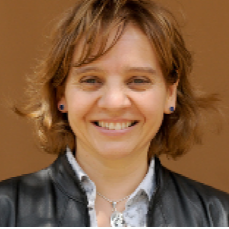
Dr. Teresa Oteíza
Dr. WANG Pin (Shanghai Jiaotong University, China) is an internationally renowned SFL scholar who is familiar with a range of Indo-European, East Asian, South Asian, Sino-Tibetan and other languages. His report, titled ‘Nominal group systems and structures: A systemic typological perspective’, presented an exploration of descriptive challenges faced by SFL as its research expands across a wider range of languages. His proposals were cogently illustrated by examples from Sino-Tibetan languages.
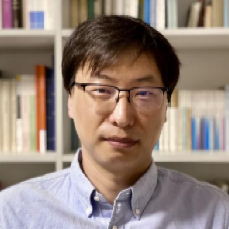
Dr. WANG Pin
Professor YANG Yanning (East China Normal University) has attracted wide academic attention through his research into diachronic linguistics and grammatical metaphor. His report was titled ‘The Diachronic Typology of Constructions: A Systemic Functional Framework’. Using two large corpora of Classical Chinese and Old English, he provided synchronic evidence for grammaticalisation from a diachronic perspective.
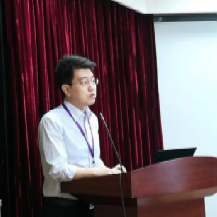
Professor YANG Yanning
In addition to the Congress plenary papers, the Congress itself was a forum for the discussion of major, complex theoretical and descriptive issues in SFL. International scholars participating in the forum clarified some key concepts and descriptive frameworks, reported new findings on a wide range of research topics and proposed applications of SFL in future research.
The ISFLA Executive Committee convened the association’s annual meeting online on the evening of July 26. It announced that ISFC 48 will be held in Tunisia in April 2023.
At the closing ceremony, the two convenors expressed warm thanks to the experts and representatives who participated in and supported the Congress and, especially to all the Congress staff led by Dr. JIN Nana.
The success of the Congress will enhance exchanges of views in the Asia-Pacific region and well beyond, and will promote the academic growth of young scholars. It will also have a positive impact on SFL research in the Greater Bay Area of Guangdong, Hong Kong and Macao, as well as in East, Southeast and South Asia. At the same time, the online operation of the Congress and various workshops has provided a significant organisational experience which will helpfully inform the nature of future international congresses.
(Contributed by the School of Foreign Languages, Shenzhen University)
